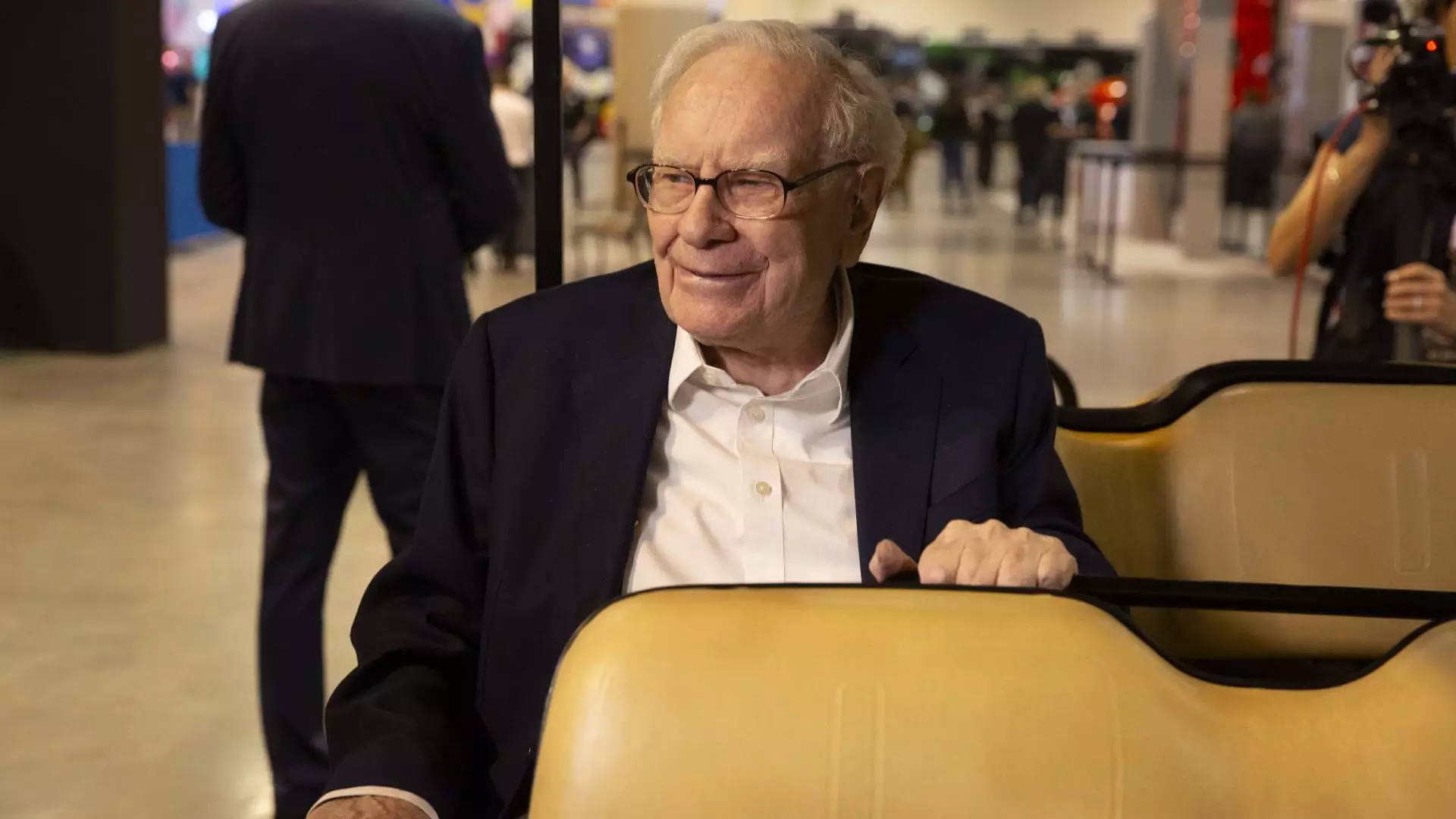The financial world is abuzz with news surrounding Berkshire Hathaway, particularly after the release of its latest earnings report, which revealed a remarkable surge in operating earnings. However, beneath the surface of these triumphant figures lies a complex narrative that has left many investors questioning the company’s strategic direction and the management of its substantial cash reserves.
Berkshire Hathaway, the conglomerate steered by the legendary Warren Buffett, saw its operating profit soar by an astonishing 71% to reach $14.5 billion in the fourth quarter. This growth is largely attributable to a significant upswing in insurance underwriting, which witnessed a staggering 302% increase year-over-year, earning the company $3.4 billion. Such figures could easily be interpreted as a signal of robust corporate health, yet they tell only part of the story. The contrasting decline in investment gains—sharply down from $29.1 billion in the previous year to a mere $5.2 billion—sheds light on a cautious approach to market conditions.
This juxtaposition of rising operating profits with diminishing investment results raises questions about the overall strategy being employed by Berkshire Hathaway. While robust operational earnings might indicate strength in the company’s core business segments, the faltering investment performance could hint at underlying challenges in maneuvering through today’s economic landscape.
Berkshire’s cash reserves have become a focal point for analysts and shareholders alike. The conglomerate’s cash pile has ballooned to a record-high $334.2 billion, growing from $325.2 billion in the previous quarter. Investors have been eagerly awaiting insights into how these cash reserves will be utilized, especially in light of the ongoing trend where the company has sold more equities than it has purchased for the last nine quarters.
Buffett’s assertion that maintaining substantial cash reserves does not signify a retreat from stock and business acquisitions presents a dichotomy that requires scrutiny. He attributes the decision to hold onto this vast sum to a lack of compelling investment opportunities amid high market valuations. This perspective may resonate with risk-averse investors, yet the growing cash reserves have prompted frustration and impatience among those hoping for immediate action or new acquisitions.
In his recent letter to shareholders, Buffett did not shy away from addressing the collective anxieties regarding the future. He expressed confidence in his handpicked successor, Greg Abek, hinting at a strategic continuity that many investors find reassuring. By drawing comparisons to the late Charlie Munger, Buffett signals that the principles guiding Berkshire’s investment philosophies will endure even after his eventual departure.
While many applaud this strategic depth, others question the effectiveness of a more conservative approach during a bull market. Investors are left to ponder whether this strategy will yield long-term rewards or if it risks missing out on timely opportunities.
Despite the uncertainties surrounding cash management, it’s worth noting that Berkshire Hathaway has had a stellar performance over the past year, rallying 25.5% in 2024 and outpacing the S&P 500—its strongest performance since 2021. Furthermore, the stock has exhibited a commendable 5% increase so far in 2025, offering a glimmer of hope to those who remain invested.
Nevertheless, the real challenge lies in balancing short-term expectations with long-term strategic vision. Some analysts laud Buffett’s conservative strategy as a prudent approach that positions Berkshire for significant opportunities amidst economic downturns. On the other hand, the absence of share buybacks in recent quarters, an investment technique that has historically reassured shareholders, has left some feeling uneasy about the absence of direct shareholder value initiatives.
While Berkshire Hathaway’s latest financial report showcases impressive operating earnings, it uncovers a layer of discontent among shareholders eager for clarity regarding the mammoth cash reserves. Buffett’s strategic conservatism may indeed create a robust framework for future growth, but it also necessitates a patient mindset from investors. As the financial landscape continues to evolve, the company’s ability to navigate this complex environment will be key to sustaining investor confidence and ensuring lasting success in the marketplace. Ultimately, stakeholders will be watching closely to see if Berkshire Hathaway’s strategies will yield opportunities or if they signal a wait-and-see approach that might risk being left behind as the market evolves.

Leave a Reply